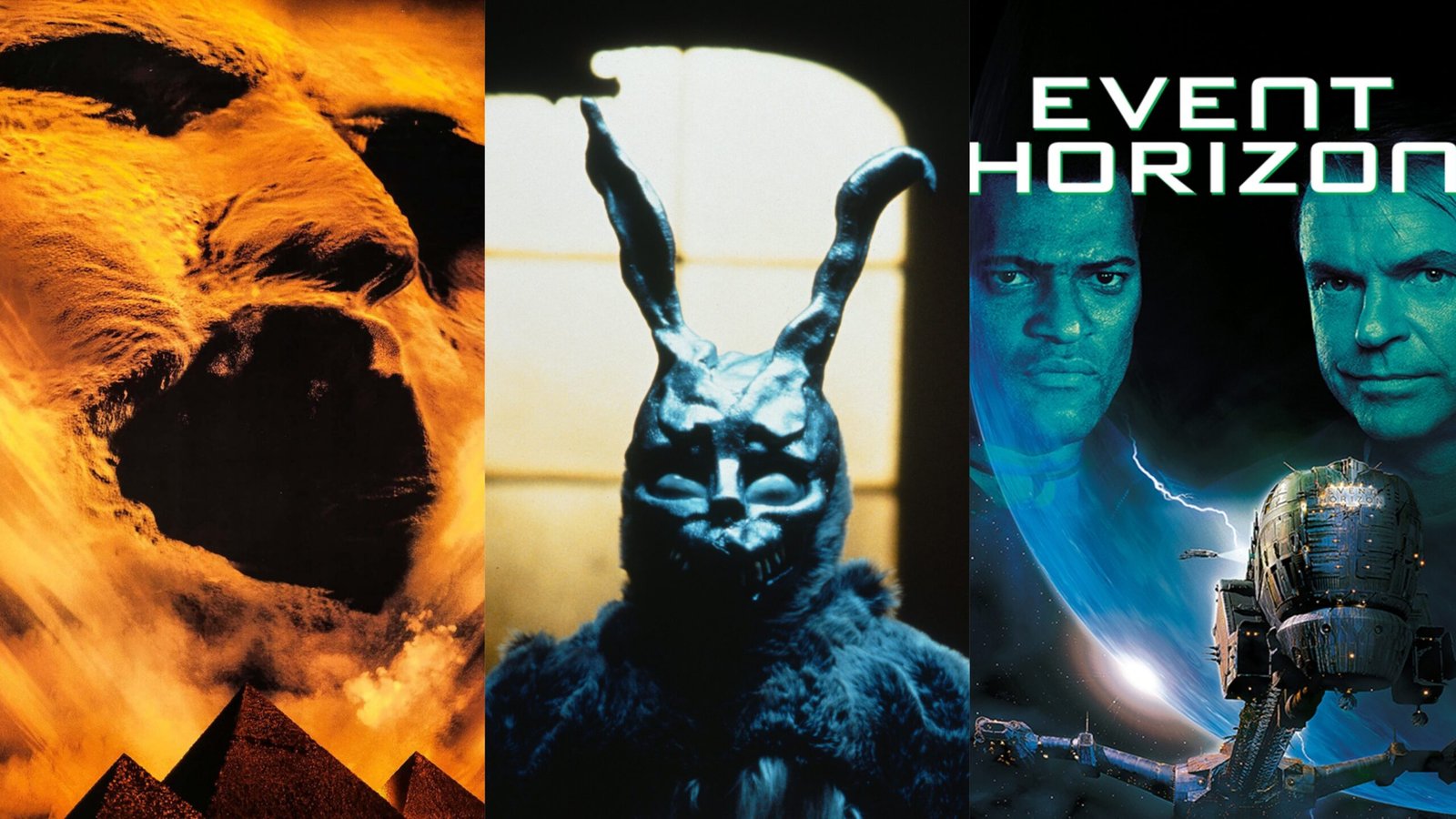
We’ve all heard the saying “even a broken clock is right twice a day.” The same can be said for some of the most notorious directors in Hollywood. While many of them are known for churning out mediocre or downright terrible films, every so often they manage to strike gold and deliver a truly great cinematic experience. In this article, we’ll explore 5 such films – movies that stand out as shining examples of quality work from otherwise lackluster directors.
The Mummy (1999) – Directed by Stephen Sommers
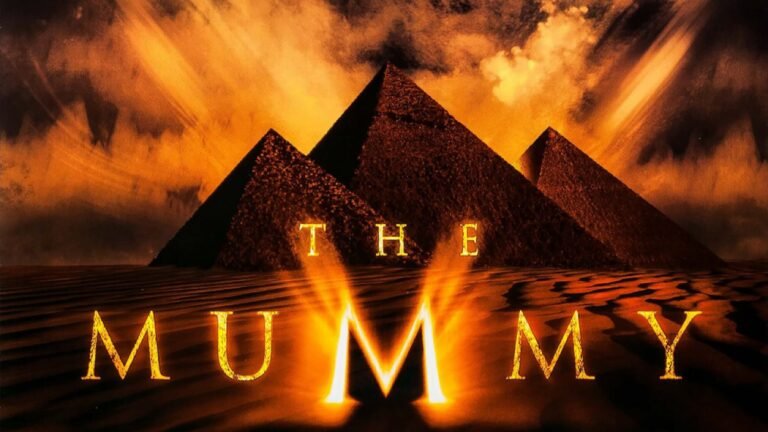
When it comes to the career of director Stephen Sommers, there’s a clear divide between his early successes and his later failures. And at the top of the “win” column sits his 1999 action-adventure film The Mummy.
Starring Brendan Fraser as the dashing explorer Rick O’Connell, The Mummy blends elements of horror, comedy, and high-octane thrills into a thoroughly entertaining package. The story follows O’Connell as he accidentally awakens an ancient Egyptian mummy, setting off a chain of events that threatens to destroy the world. Along the way, he teams up with the beautiful Evelyn (Rachel Weisz) and her bumbling brother Jonathan (John Hannah) to try and stop the mummy’s rampage.
What makes The Mummy work so well is Sommers’ ability to balance all those different tones and genres. The film never feels disjointed or uneven – it flows seamlessly from one set piece to the next, delivering just the right mix of scares, laughs, and pulse-pounding action. And at the center of it all is Brendan Fraser, whose charismatic performance as the reluctant hero anchors the entire film.
Sadly, Sommers was never able to recapture the magic of The Mummy in his subsequent efforts. Films like The Mummy Returns, Van Helsing, and G.I. Joe: The Rise of Cobra all suffered from the director’s tendency to prioritize flashy visual effects over coherent storytelling. But for one shining moment, Sommers proved that he could craft a truly entertaining blockbuster when he put his mind to it.
Event Horizon (1997) – Directed by Paul W.S. Anderson
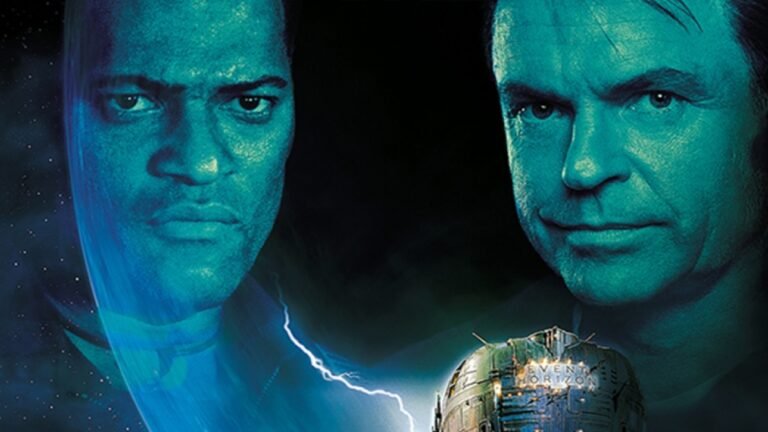
When you hear the name “Paul W.S. Anderson,” a few things probably come to mind: video game adaptations, Milla Jovovich, and a general sense of cinematic mediocrity. But buried within Anderson’s filmography is a hidden gem – a sci-fi/horror hybrid called Event Horizon.
Released in 1997, Event Horizon follows a group of scientists and astronauts who are sent to investigate the reappearance of a long-lost experimental spacecraft. When they arrive, they discover that the ship has been transformed into a portal to a hellish alternate dimension, and the crew must fight for their lives against the malevolent forces that have taken control.
What sets Event Horizon apart is its commitment to creating a truly unsettling and atmospheric horror experience. Anderson manages to craft a palpable sense of dread and isolation, as the characters find themselves trapped and cut off from the outside world. The film also features some genuinely disturbing and visceral imagery, with the “hell dimension” sequences delivering a level of body horror that was quite shocking for the time.
Of course, Anderson’s filmography is littered with more misses than hits, and his tendency towards style over substance is on full display in later efforts like the Resident Evil movies and Alien vs. Predator. But for one shining moment, he managed to craft a genuinely compelling and unsettling sci-fi horror film that stands out as one of the better entries in his otherwise uneven career.
Donnie Darko (2001) – Directed by Richard Kelly
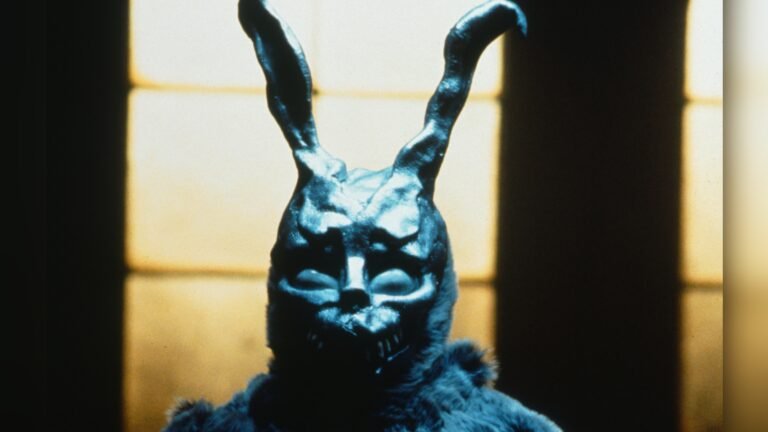
When it comes to cult classic films, few are as beloved and enigmatic as Donnie Darko. Directed by Richard Kelly, this 2001 psychological thriller follows the story of a troubled teenager (played by Jake Gyllenhaal) who begins having visions of a sinister-looking rabbit that warns him of the impending end of the world.
What makes Donnie Darko so captivating is the way it blends elements of science fiction, coming-of-age drama, and psychological horror into a truly unique and compelling narrative. The film’s nonlinear structure and ambiguous storytelling keep viewers on their toes, as they try to piece together the various clues and theories surrounding Donnie’s visions and the larger mystery at hand.
But beyond the film’s mind-bending plot, what really elevates Donnie Darko is the way it taps into the universal anxieties and insecurities of adolescence. Gyllenhaal’s raw and vulnerable performance as the troubled title character is the emotional core of the film, and his journey of self-discovery and acceptance resonates on a deep, personal level.
Unfortunately, the success of Donnie Darko proved to be a double-edged sword for director Richard Kelly. While the film has gone on to become a cult classic, Kelly’s subsequent efforts, like Southland Tales and The Box, have been met with a much colder reception. It seems that the lightning-in-a-bottle magic of Donnie Darko was a tough act for Kelly to follow, and he’s struggled to recapture that same level of critical and commercial success.
Still, the enduring popularity of Donnie Darko stands as a testament to Kelly’s ability to craft a truly unique and memorable cinematic experience. For all its flaws and unanswered questions, the film remains a captivating and thought-provoking work of art that has left an indelible mark on the hearts and minds of its devoted fans.
Speed (1994) – Directed by Jan de Bont
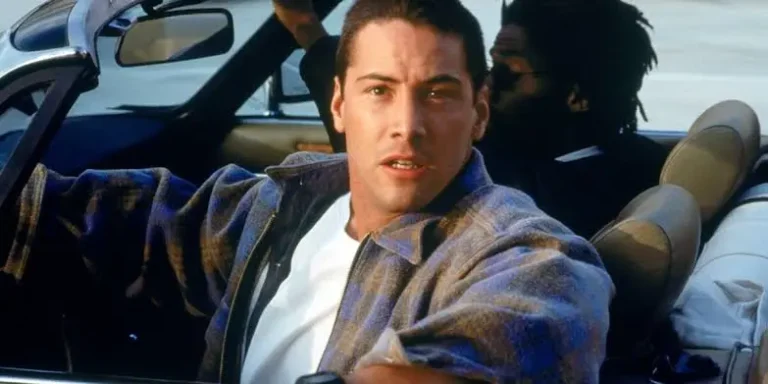
In the pantheon of classic action movies, few are as thrilling and iconic as Speed. Directed by Jan de Bont, this 1994 blockbuster follows the story of a Los Angeles police officer (Keanu Reeves) who must keep a hijacked bus traveling at a breakneck speed to prevent a deadly bomb from detonating.
What makes Speed such a standout is the way it maintains a relentless sense of momentum and tension from start to finish. De Bont’s direction is laser-focused, with each set piece and action sequence building upon the last to create a truly breathtaking viewing experience. The film never lets up, constantly throwing new obstacles and challenges at the characters to keep the audience on the edge of their seats.
But Speed is more than just a thrill ride – it also features a compelling human drama at its core. The relationship between Reeves’ character and Sandra Bullock’s passenger-turned-reluctant-hero adds an emotional weight to the proceedings, and their growing bond and trust in one another becomes just as captivating as the high-octane action.
Sadly, de Bont’s subsequent efforts as a director have been far less successful. Films like Twister and The House on Haunted Hill have failed to capture the same level of excitement and energy as Speed, leading many to wonder if the director’s true calling lies more in the realm of cinematography (where he has an impressive resume) than in the director’s chair.
Still, Speed remains a shining example of de Bont’s ability to craft a truly thrilling and engaging action movie. The film’s enduring popularity and status as a modern classic is a testament to the director’s skill in delivering a white-knuckle ride that has stood the test of time.
Independence Day (1996) – Directed by Roland Emmerich
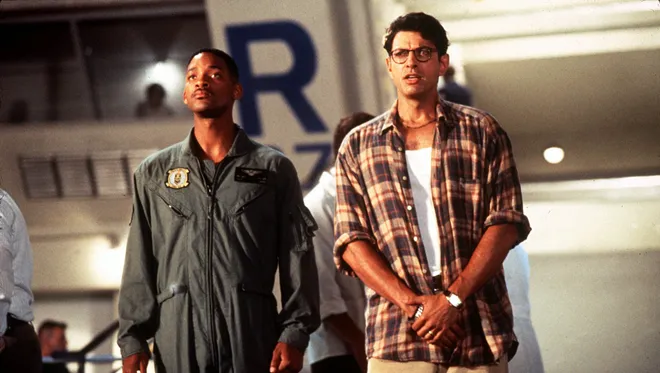
When it comes to directors known for their over-the-top, big-budget spectacles, few can match the reputation of Roland Emmerich. From Godzilla to 2012, Emmerich has made a name for himself as the go-to guy for films that prioritize massive-scale destruction over coherent storytelling.
But amidst all of Emmerich’s disaster porn, there stands one film that manages to rise above the rest: Independence Day. Released in 1996, this alien invasion blockbuster follows a ragtag group of heroes (led by Will Smith and Jeff Goldblum) as they band together to fight back against a relentless extraterrestrial attack on Earth.
What makes Independence Day work so well is the way it balances its grand, sweeping scale with a genuine sense of character and heart. Emmerich’s direction is surprisingly focused and disciplined, allowing the film’s ensemble cast to shine and the story to unfold in a compelling, character-driven way.
And of course, the film’s iconic scenes of the White House and other landmarks being destroyed by the alien invaders have become some of the most memorable and enduring images in modern cinema. Emmerich’s knack for crafting truly awe-inspiring visual spectacles is on full display, and the sheer scale and intensity of these sequences have cemented Independence Day as a true blockbuster classic.
Unfortunately, Emmerich’s subsequent efforts have largely failed to recapture the magic of Independence Day. Films like 2012 and Independence Day: Resurgence have been criticized for their over-the-top destruction and lack of meaningful character development. It seems that Emmerich’s strengths lie more in delivering big, bombastic set pieces than in crafting truly compelling narratives.
But for one shining moment, the director managed to strike the perfect balance between spectacle and substance, delivering a film that has endured as a beloved and iconic entry in the annals of science fiction cinema.
Conclusion
In the ever-evolving landscape of Hollywood, it’s easy to get caught up in the hype and expectations surrounding certain directors. But as these 5 films have shown, even the most notorious and maligned filmmakers are capable of producing something truly special when the stars align.
So the next time you come across a director whose name is synonymous with mediocrity or disappointment, don’t be so quick to write them off. Because you never know – they just might surprise you with a hidden gem that stands out as a shining example of their true cinematic potential.
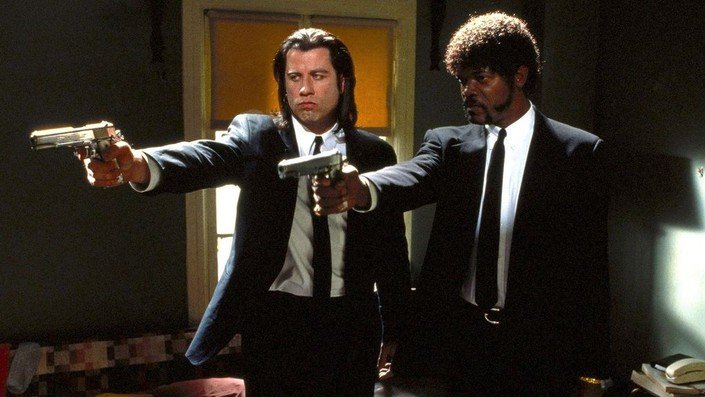
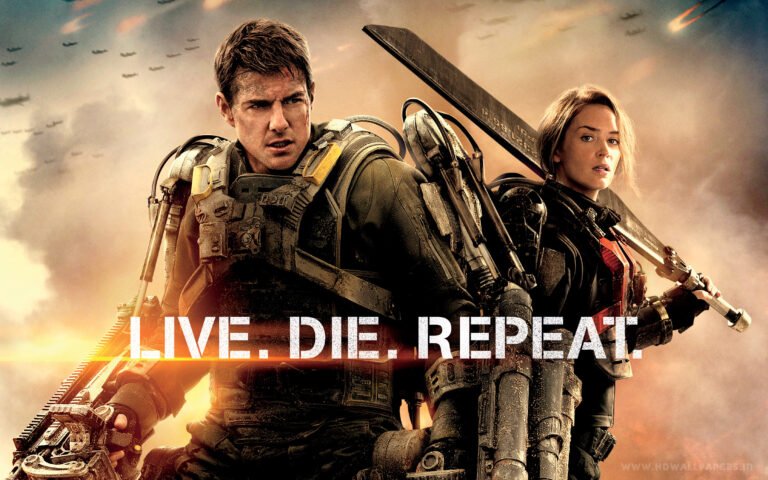
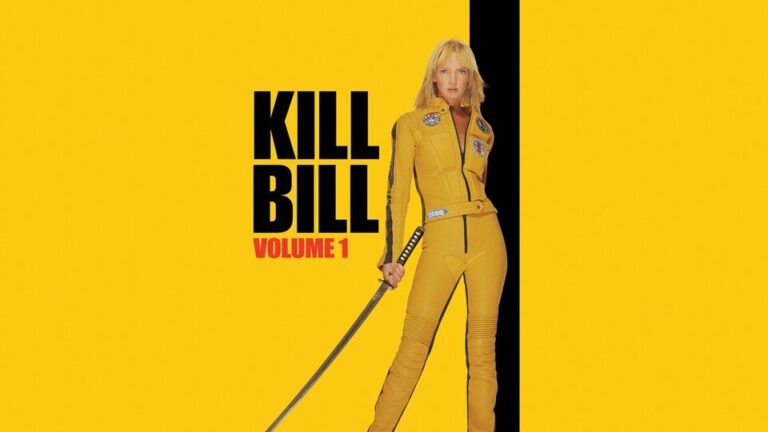
1 thought on “5 Great Films from Notoriously Bad Directors”